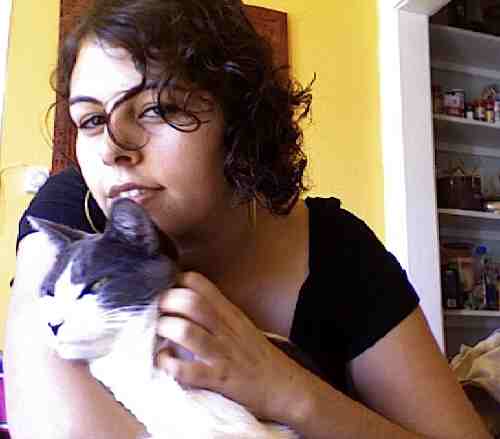In theory, this is great for our students because it means only the best teachers are in the classroom, no matter what their status. Practice, however, rarely aligns with the theoretical, this being no exception. Teachers at my school are scared, based on their past experiences with administration, that the passage of Prop 74 will mean not that the bad teachers will go - there are too many of them, for one thing - but that it will instead be a tool for school boards and administrators to get rid of the vocal teachers, the ones who voice displeasure at idiotic "reforms" that do nothing for the students, who demand pay for time worked, and who commit any other crime against the well-oiled machine that is the educational bureaucracy.
The thing to remember is that "permanent status," as it stands, does not mean you have a job forever. The dismissal process, however, involves lots of documentation and, if requested by the teacher, a hearing, as well at 90 days in which to improve. Prop 74 wants to get rid of all of that unneccessary "procedure" and "due process." My overwhelming impression is and has always been that when bad teachers are not fired, it is because a bad teacher is still slightly better than no teacher at all, and with a teacher shortage as severe as California's, I think we would do best to spend our efforts aggressively recruiting and retaining excellent teachers. People don't want to teach in California because it's not worth their while. They work too damn hard for too little money, with the guillotine ever hanging over their heads. And while Prop 74 claims to "[reward] the best teachers [while] weeding out 'problem teachers'" (and yes, that phrase is raising my eyebrows), the only "reward" it offers is "being allowed to keep your job."
The fear around these parts is that the whole thing is part of a sinister Republican plan to completely and intentionally undermine the public education system, priming schools for lucrative privatization. It sounds a little crazy until you notice that for more information, you're directed to joinArnold.com - and until you hear that this kind of thing is happening all over the place, even down the street, with one of LA's most troubled high schools in talks to be taken over by Green Dot, a successful but controversial charter-school organization. I haven't been around long enough to start weighing in on conspiracy theories, and I need to see charter schools for myself before I commit to a stance one way or the other. But what does worry me is an issue captured succinctly in the "Fiscal Effects" section of the prop report:
Given the longer probationary period, districts could dismiss more teachers during their first five years. This could result in salary savings by replacing higher salaried teachers toward the end of their probationary period with lower salaried teachers just beginning their probationary period.
My mom works in schools; she always has. In my young life I've seen more pink slips, reduced hours, ingenious ways to avoid paying health insurance, and multiple-positions-combined-into-one than I can even now make sense of. One of my friends here works in Jewish day schools; she has her MA in religious studies and has heard that this may make finding work difficult because she is entitled to higher pay. I have never - never - heard of an increase in any budget that was easy to access, came with few strings attached, or lasted longer than a yer or two before being decreased to below the original amount. My life experiences up to and including this very moment have made me immediately suspicious of any way to cut costs in schools. School costs a lot, but it does not cost nearly enough for what we are asking of it. It's only the future of the nation we're talking about here, only the life prospects of entire generations. For my kids in particular, a good K-12 education isn't the difference between a state school and an ivy league; it's the difference between learning the language of their nation of residence, or remaining effectively illiterate and doomed to repeat the cycle of poverty. They should have the best teachers we have, no matter what that costs. I'm sure the people behind Prop 74 think that's what they're giving us, but the best teachers we have think differently.
Anyway, the thing is ahead in opinion polls right now, and it sounds pretty good on paper, the way the whole "Defense of Marriage" thing did a few years back, until you stopped and realized that marriage didn't really need defending. All I'm asking is that you not go with public opinion on this one - look into it, read the counterarguments, think it over, and above all, talk to an educator or someone else on the ground inside schools. Then, take that information and pass it on.
This is my favorite part of the ballot:
Unfortunately, Opponents of Prop 74 Don't Want Reform:
They will stop at nothing to defeat Prop 74 and have spent millions for television ads to confuse voters on the reforms we need to get California on track.
Advertise? How dare they!
